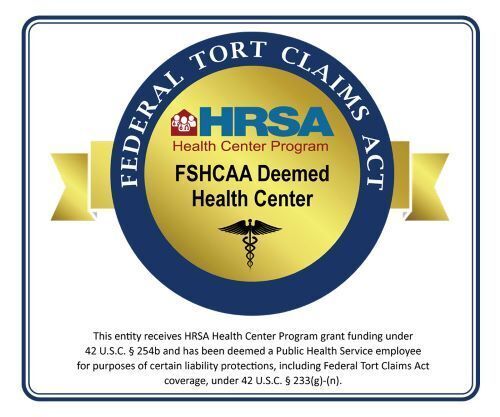Screening is Key: Cervical Cancer Awareness Month
An estimated 12,000 women are diagnosed with cervical cancer every year, roughly one-third of those will die because of the cancer. However, cervical cancer is preventable and treatable with improved screening and vaccinations.
January has been designated as Cervical Health Awareness Month to encourage and remind women to get screened for cervical cancer, and for women (and children) to receive the human papillomavirus (HPV) vaccine when eligible.
With today’s advancement in detection tools and vaccinations, cervical cancer can be a condition that is relatively easy to prevent and treat. Unfortunately, there are still many people who are not vaccinated and screened regularly, and for those cervical cancer can be a serious and sometimes fatal illness. Lack of information or inadequate health care is often the cause for individuals not to be proactive, so hopefully by raising awareness and making it affordable – we can decrease the number of fatal cases each year.
"Science has put us in a remarkable position to protect women from cervical cancer, but technology is only half the battle," said American Social Health Association (ASHA) president and CEO Lynn Barclay. "It's imperative we continue efforts that not only promote greater access to health care, but that we also inform women about cervical cancer and the marvelous means we now have to prevent this disease."
Crescent Community Health Center is extremely proud to be a high-quality and affordable resource, through offering screenings and HPV vaccinations. This year, we are placing focus on increasing the number of eligible women getting the HPV vaccine. This is an essential part of our focus, because HPV is common among women and has been proven to be the main cause of cervical cancer. It is estimated that at least 75 percent of the reproductive-age population has been infected with at least one form of genital HPV. In most cases, there are no symptoms and can go away on its own. However, in about five percent of women, a persistent infection occurs with high-risk strains of HPV, which are the cause of most of cervical cancer diagnoses. In addition, we are excited to announce that one of our nurse practitioners, Tassie Carter, is in the process of being certified to preform colposcopies at Crescent. A colposcopy is a procedure typically recommended after a Pap test result is abnormal.
The HPV vaccine is given in three separate doses, and can protect women against four types of HPV – the two most common high-risk strains and the two most common low-risk strains. The vaccine should be given before an infection occurs and preferably before a girl becomes sexually active. The Centers for Disease Control and Prevention suggests the vaccination for girls and women aged 11 to 26. Health care professionals are increasingly suggesting that teen boys and men get the vaccine as well.
"Fewer than half of girls and young women who are eligible for these vaccines have completed the three-dose series, so increasing vaccine uptake is a priority for us," said Barclay.
The National Institute of Health has stated, cervical cancer develops gradually starting as a precancerous condition known as dysplasia. These abnormal cells are easily detected through a Pap test, and can be treated efficiently. There is an added HPV test that, when combined with a Pap test in women over the age of 30, can help identify the women at risk for developing cervical cancer.
If dysplasia is left unnoticed, it can become cervical cancer – which can potentially spread to the bladder, intestines, lungs, and liver.
It is an unfortunate fact that cervical cancer symptoms may not show up until the cancer is advanced. These symptoms include abnormal vaginal bleeding, unusual discharge, and periods that last longer or have a heavier flow than usual, and bleeding after menopause.
We urge you to call and schedule a screening and/or vaccination with a provider at Crescent, or schedule a time to talk about screening tests and how often you need them.










